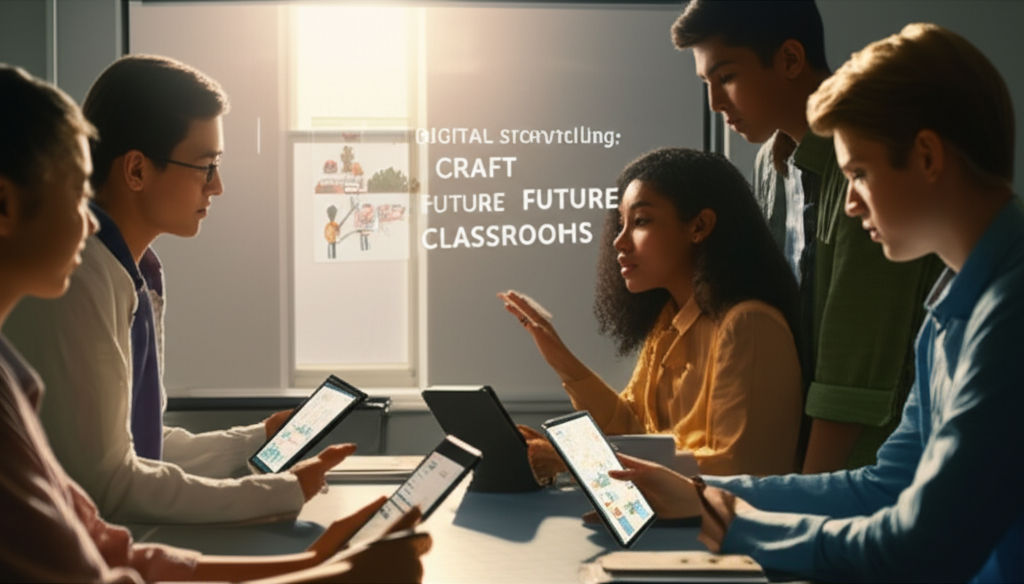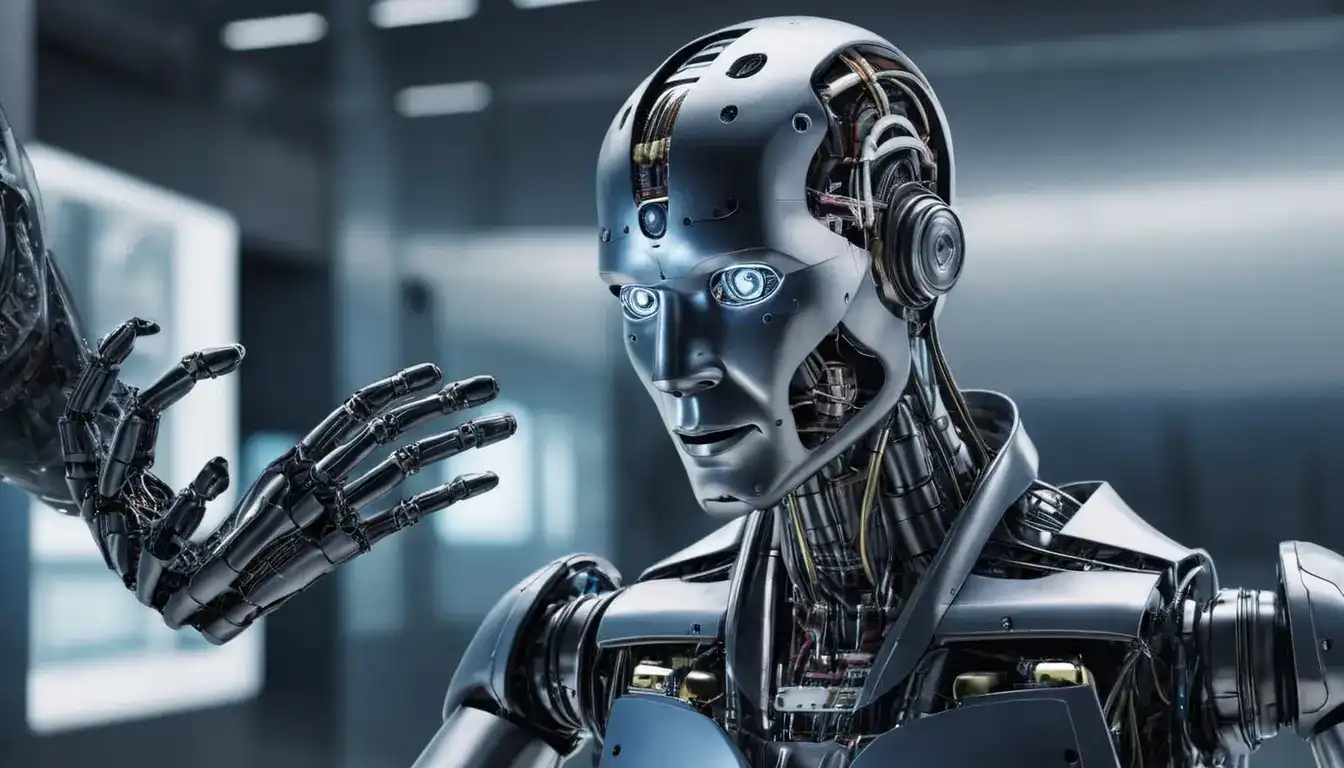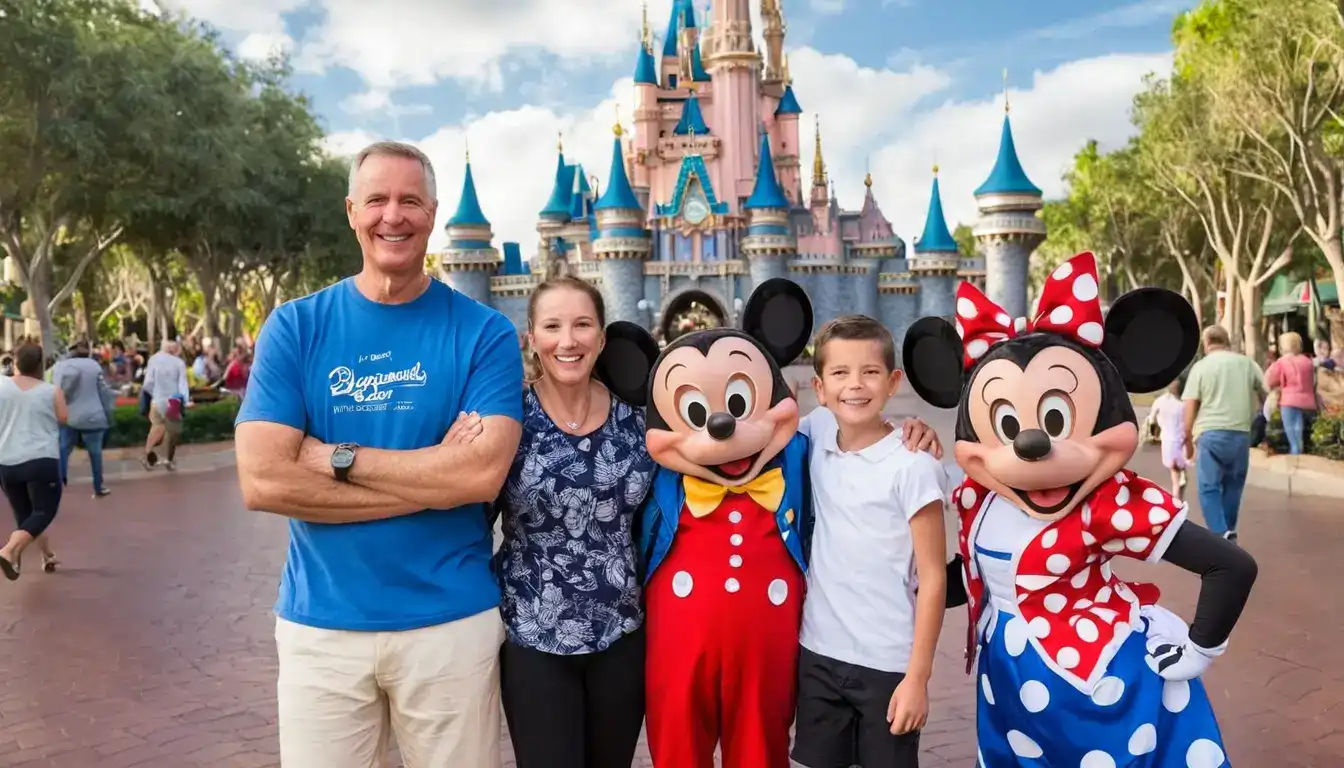St. Louis Economy Hub
Emily Willis

Photo: St. Louis Economy Hub
The St. Louis Economy Hub: A Deep Dive into a Dynamic Midwestern Powerhouse
St. Louis, often recognized for its iconic Gateway Arch, vibrant arts scene, and rich history, is also a quietly powerful economic hub in the heart of the Midwest. Far from being a relic of its industrial past, the St. Louis economy has undergone a significant transformation, diversifying its strengths and fostering a dynamic environment for innovation and growth. This article explores the multifaceted landscape of the St. Louis economic hub, highlighting its key industries, growth drivers, and future outlook, providing valuable insights for anyone interested in this resilient and evolving metropolitan area.
St. Louis: More Than Just the Gateway Arch – A Thriving Economic Center
For decades, St. Louis has played a crucial role in the American economic narrative, historically serving as a vital port city and manufacturing powerhouse. While its foundational strengths remain, the region has successfully adapted to modern economic demands, emerging as a diverse and competitive market. In 2019, the Gross Domestic Product (GDP) of St. Louis reached $152.4 billion, ranking it among the top metropolitan economies in the United States. More recently, the St. Louis region's GDP reached $209 billion, placing it in the top third of U.S. metro areas. This robust economic activity is supported by a significant workforce, with the St. Louis metropolitan area home to nearly 1.5 million workers.
The city's strategic central location continues to be a significant asset, positioning it as a critical nexus for logistics and distribution across the nation. Beyond its geographical advantages, St. Louis has cultivated an environment that encourages both established corporations and burgeoning startups to thrive, making it an increasingly attractive destination for businesses and individuals alike.
Pillars of Prosperity: Key Industries Driving the St. Louis Economy
The strength of the St. Louis economy lies in its diverse array of industries, each contributing significantly to the region's overall prosperity and job growth.
Bioscience and Healthcare: A World-Class Ecosystem
St. Louis has firmly established itself as a global leader in bioscience and healthcare. This sector is not only one of the largest employers in the region, with over 199,463 workers, but also a major driver of economic activity, generating $22.5 billion in business as of the 2017 Economic Census. The region boasts over 161 licensed hospitals and health systems, providing care to millions and employing tens of thousands of healthcare professionals.
Key institutions like Washington University in St. Louis, a global research powerhouse with over $700 million annually spent on R&D, and BJC HealthCare are at the forefront of this thriving ecosystem. The Cortex Innovation Community, a 200-acre innovation district located between the medical schools of Saint Louis University and Washington University, houses over 425 companies and is a hub for bioscience and health innovation, attracting nearly $1 billion in private investment. This robust environment fosters a continuous stream of research, development, and job creation in fields like health-tech, telemedicine, and personalized medicine.
Advanced Manufacturing and Automotive: Rebuilding and Innovating
St. Louis has a deep-rooted history in manufacturing, particularly in the automotive industry. Major automobile plants operated by companies like General Motors continue to be significant employers, with over 130,000 Missouri residents working in automotive manufacturing roles across the state. Recent investments exceeding $4 billion by major automakers underscore their long-term commitment to the St. Louis region.
Beyond traditional automotive assembly, St. Louis also excels in advanced manufacturing, including the production of petroleum products like lubricants and waxes, with major local companies such as Schaefer Manufacturing. The region's manufacturing and distribution industries experienced a 33% increase in GDP from 2020-2025, demonstrating a strong capacity for producing high-value goods. This sector is increasingly integrating high-tech processes, ensuring its continued relevance and growth.
Logistics and Distribution: The Central Advantage
Leveraging its unparalleled central geographic location, St. Louis is a crucial logistics and distribution hub. The Mississippi and Missouri Rivers play a significant role in moving bulk commodities, making the Port of St. Louis the third-largest inland port by tonnage in the country as of 2004. Furthermore, St. Louis is the nation's third-largest railroad hub, facilitating the movement of a vast array of goods. This multimodal infrastructure and workforce readiness make the region a global leader in freight movement and industrial development.
Financial Services and Professional Services: Stability and Growth
The St. Louis area is a significant center for financial and professional services, providing a stable backbone for its diverse economy. With over 7,900 financial businesses employing more than 84,000 professionals, the region is home to major firms like Edward Jones, Stifel Financial, and Wells Fargo Advisors. St. Louis boasts the second-highest concentration of financial securities brokerage firms among the 25 largest U.S. metros, second only to New York. The burgeoning fintech scene, exemplified by companies like Square and FinLocker, further highlights the sector's innovative trajectory, leveraging St. Louis's strong IT and financial services foundations.
Technology and Innovation: The Rise of a Startup Scene
St. Louis has emerged as a vibrant and rapidly growing tech hub, attracting significant attention for its burgeoning startup ecosystem. As of 2024, the city is home to over 450 tech startups, contributing a remarkable $1.2 billion to Missouri's tech economy. This growth is fueled by a strong network of support, including incubators and accelerators like Cortex Innovation Community, T-REX, Capital Innovators, BioGenerator, and The Yield Lab, which offer funding, mentorship, and resources to early-stage companies.
The region's universities consistently produce a pipeline of talented graduates, and the presence of venture capital firms like Cultivation Capital and initiatives like Arch Grants (which awards non-dilutive grants to startups) further bolster the innovation landscape. St. Louis's low cost of living is also a major advantage for launching new ideas, making it an attractive destination for entrepreneurs.
Factors Fueling Growth: Why Businesses Choose St. Louis
Several compelling factors contribute to St. Louis's appeal as an economic hub:
Strategic Location and Infrastructure
St. Louis's position at the confluence of the Mississippi and Missouri Rivers, coupled with its extensive rail and highway networks, provides unmatched logistical advantages for businesses involved in transportation and distribution.
Affordable Cost of Living and Business Operations
Compared to many other major U.S. cities, St. Louis offers a significantly more affordable cost of living, which is about 6.6% below the national average. This affordability extends to business operations, with low electricity costs and reasonable corporate income taxes contributing to a business-friendly environment. This makes it particularly attractive for startups and businesses looking to minimize overhead.
Robust Talent Pipeline and Educational Institutions
The St. Louis region benefits from an extensive educational market, with forty universities and colleges awarding 34,000 degrees each year. Institutions like Washington University in St. Louis and the University of Missouri-St. Louis consistently produce a highly skilled and educated workforce. Over 35% of the St. Louis workforce holds a bachelor's degree or higher, exceeding the national average. Specialized programs and initiatives, such as those focusing on STEM talent and workforce development programs like STL.works, ensure a continuous supply of skilled professionals for in-demand industries like healthcare, technology, and advanced manufacturing.
Supportive Ecosystem for Innovation and Entrepreneurship
The collaborative spirit among universities, established corporations, and a growing number of incubators and accelerators creates a fertile ground for new businesses. Programs like Arch Grants and organizations like the St. Louis Economic Development Partnership actively work to attract, retain, and grow businesses by providing financial assistance, mentorship, and strategic planning.
Navigating the Economic Landscape: Challenges and Opportunities
While the St. Louis economy demonstrates remarkable resilience and growth, it is not without its challenges. Addressing these areas is crucial for sustained and inclusive prosperity.
Addressing Workforce Development Gaps
Despite a robust talent pipeline, some industries still face a shortage of skilled workers, particularly in tech. Initiatives like the St. Louis Tech Workforce Coalition are working to upskill and retrain individuals for tech roles, aiming to address this talent gap. Programs such as "The Monarch on MLK" are also being developed as workforce development hubs to prepare residents for high-paying, in-demand careers in sectors like advanced manufacturing, biosciences, and logistics.
Enhancing Inclusivity and Equity in Growth
Historical challenges, including population decline and significant disparities, particularly in areas like North St. Louis, require ongoing attention. Efforts are underway to promote inclusive economic growth, with initiatives focused on supporting Black-, Brown-, and woman-owned small businesses and startups. The STL 2030 Jobs Plan, for instance, is a roadmap designed to boost economic growth, increase quality jobs, and reduce racial disparities across the metro area.
Sustaining Momentum in a Competitive Environment
The St. Louis economy, while strong, faces the ongoing challenge of maintaining its competitive edge against other growing metropolitan areas. Continuous investment in innovation, infrastructure, and talent attraction is vital.
The Opportunity of Urban Core Revitalization
Ongoing developments like CITYPARK Stadium and City Foundry STL, alongside the Cortex Innovation Community, are revitalizing urban areas, attracting visitors, and creating jobs, contributing to post-COVID economic resurgence. [22,
Latest ✨
View AllMaster strategic talent acquisition. Go beyond recruitment to identify, attract, & secure top talent that drives innovation & future organizational success.
Emily Willis
Digital storytelling crafts future classrooms! Combine narratives & tech for engaging learning, boosting student engagement, critical thinking & creativity.
Emily Willis
Artificial Intelligence (AI) is reshaping industries across the globe, from healthcare to finance, by solving complex problems, increasing efficiency, and driving innovation. In healthcare, AI is saving lives through drug discovery, disease diagnosis, personalized medicine, and virtual health assistants.
Emily Willis
Trouvez une assurance auto en ligne immédiate pas chère pour résilié. Comparez, souscrivez en quelques minutes et repartez assuré en toute légalité.
Emily Willis
Business
View All
June 18, 2025
Navigating Mortgage Refinance Rates: Your Ultimate GuideUnlock lower payments and save thousands! Our guide breaks down mortgage refinance rates, helping you find the best options and maximize your home equity.
Emily Willis

June 8, 2025
AI in Business: Transform Your CompanyTransform your business with AI! Discover how AI drives efficiency, innovation, and a competitive edge for a future-ready company.
Emily Willis

June 9, 2025
Step-by-Step Business RegistrationsNew business? Discover why registration is vital for legal protection, credibility, and funding. Our guide simplifies establishing your venture.
Emily Willis
Economy
View AllDiscover the innovation economy: how new ideas, tech, and business models drive global growth and define future success.
Read MoreFeeling the economic drag? Discover what a "lumbering economy" means: slow growth, stagnant wages, and uncertain job prospects. Learn its impact on you.
Read MoreDeflation explained: Discover why falling prices can harm the economy. Learn its causes, effects, and how to protect your finances.
Read MoreEntertainment
View All
August 4, 2024
Virtual Music Concerts: The Future of Live Performance?The music industry has seen significant changes in recent years, with virtual music concerts becoming a popular trend, especially due to the impact of the COVID-19 pandemic. Technological advancements have made virtual concerts more accessible and cost-effective, while also reducing the environmental impact of live events. However, challenges such as technical issues and the lack of physical presence remain. The future of virtual concerts may involve hybrid models that combine virtual and physical experiences, as well as continued technological innovation to enhance the quality of virtual performances. Building a sense of community and engagement will also be crucial for the success of virtual concerts moving forward.
Emily Willis

August 4, 2024
Profiles of Famous Artists Who Inspire the Younger Generationthe inspirational aspects of famous artists such as Vincent van Gogh, Frida Kahlo, Pablo Picasso, Banksy, Yayoi Kusama, Jean-Michel Basquiat, Georgia O'Keeffe, Andy Warhol, Kehinde Wiley, and Ai Weiwei. It highlights their perseverance, innovation, authenticity, social commentary, mental health advocacy, and representation, among other qualities, and how these aspects continue to inspire young artists to pursue their creative dreams.
Emily Willis
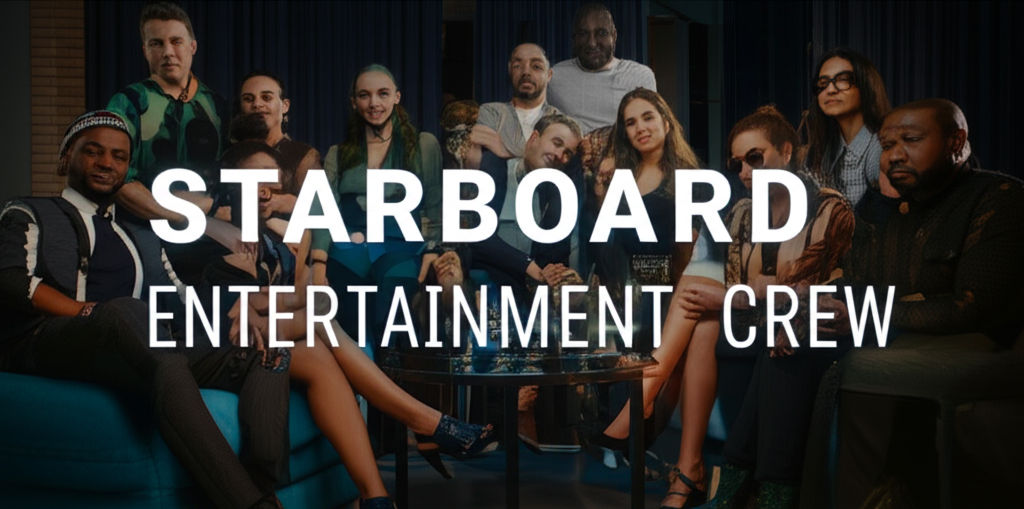
July 9, 2025
Starboard Entertainment CrewExplore the Starboard Entertainment Crew! Learn how these dedicated professionals create dazzling shows & unforgettable moments, making cruise holidays truly ma...
Emily Willis
Health
View AllMaintaining good health involves a balanced diet that provides essential nutrients for the body. A balanced diet includes carbohydrates, proteins, fats, vitamins, minerals, fiber, and water. Benefits of a balanced diet include enhanced energy levels, improved mental health, a stronger immune system, better weight management, reduced risk of chronic diseases, and enhanced digestion. Components of a balanced diet include fruits and vegetables, whole grains, protein sources, dairy or dairy alternatives, and healthy fats. Tips for maintaining a balanced diet include planning meals, portion control, staying hydrated, limiting processed foods, eating mindfully, and including physical activity.
Emily Willis
Achieve radiant, healthy skin with ZO Skin Health. Explore Dr. Obagi's science-backed approach to unlock your glow through correction, prevention & maintenance.
Emily Willis
The focus of nutrition advice is shifting towards personalized nutrition, taking into account individual genetic makeup, lifestyle, and health goals to create a customized eating plan. This approach can lead to improved health outcomes, enhanced nutrient absorption, increased motivation, and targeted support for specific health concerns.
Emily Willis
Trending 🔥
View All
1
2
3
4
5
7
8
9
10
Lifestyle



Technology
View All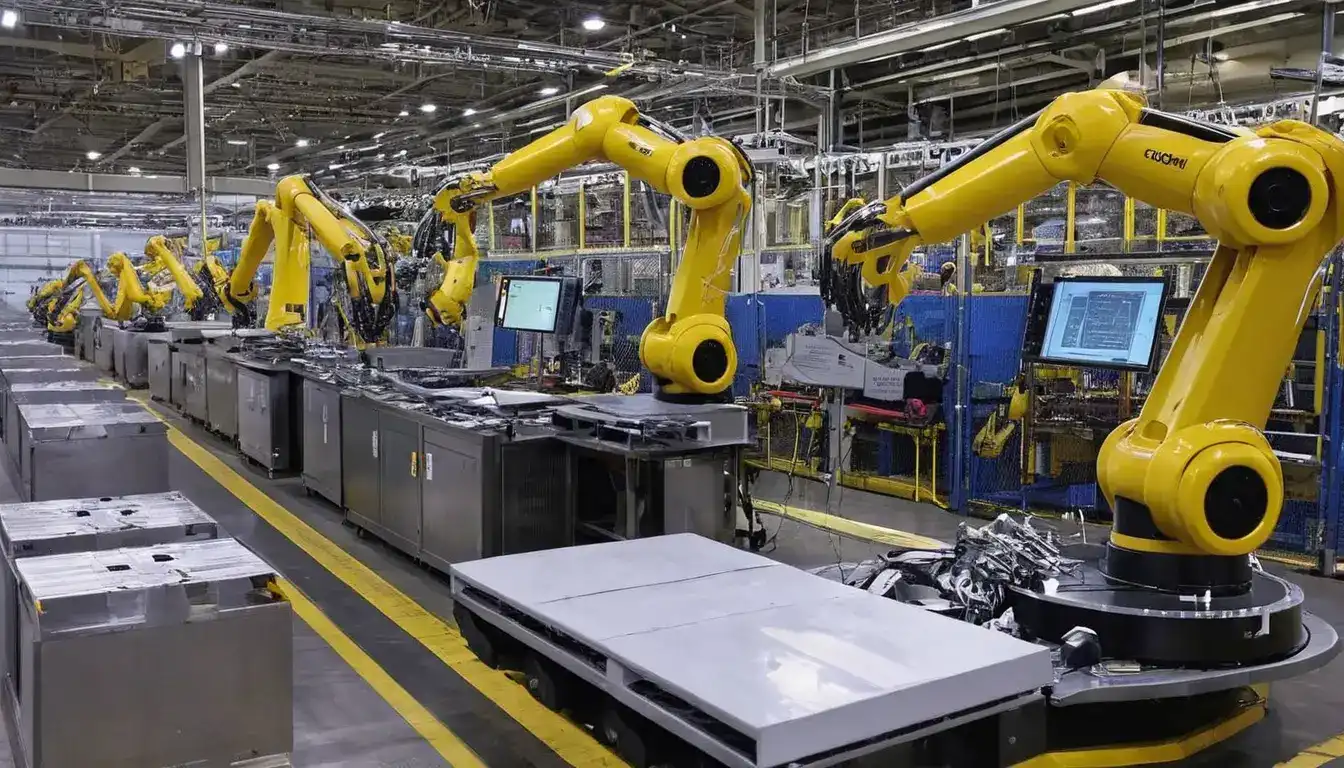
August 4, 2024
AI-Powered Robots Take Over Manufacturing Jobs: Is Our Workforce Prepared?
AI-powered robots are transforming the manufacturing industry, leading to increased efficiency and improved product quality. While concerns about job displacement exist, AI is more likely to transform jobs rather than eliminate them.

August 5, 2024
Tips for Implementing Cloud Computing Safely and Efficiently
Cloud computing is essential for modern businesses, offering cost savings, scalability, and improved collaboration. Implementing cloud computing requires careful planning to ensure safety and efficiency. Tips for safe and efficient implementation include conducting a needs assessment, choosing the right cloud service model, prioritizing security, planning for data migration, optimizing costs, training your team, implementing backup and recovery solutions, monitoring performance, planning for scalability, and staying updated with industry trends.

August 5, 2024
AI Trend Predictions for 2024 and beyond
AI is no longer a futuristic concept, it is shaping our world at an unprecedented pace. In 2024 and beyond, AI trends are likely to dominate in various industries. Generative AI is expected to revolutionize content creation, design, and product development. In healthcare, AI will lead to personalized medicine, drug discovery acceleration, improved diagnostics, and remote patient monitoring.

August 5, 2024
Best AR Translation Apps Tested
Uncover the best AR translation apps on the market through our in-depth testing and reviews. From seamless voice conversations to real-world text translation, these apps will revolutionize the way you communicate across languages.

